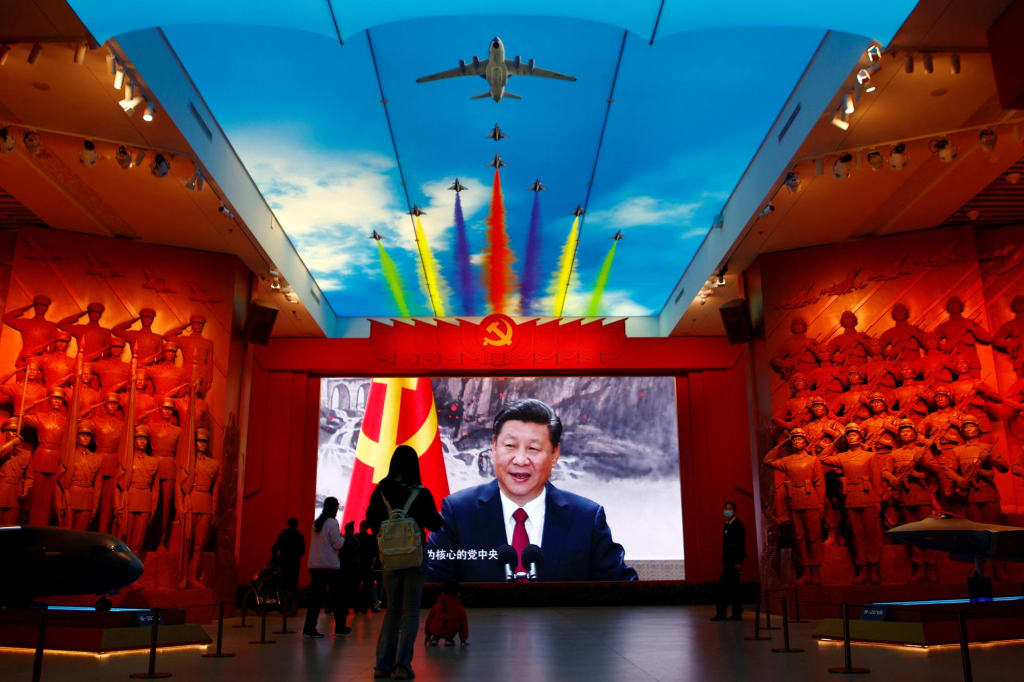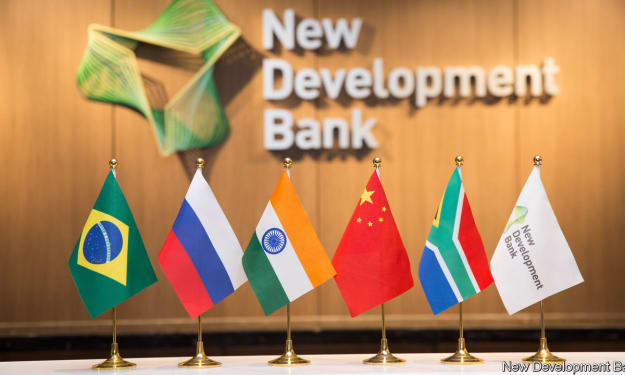
The escalating military capabilities of the U.S. and its allies surrounding Taiwan have made a successful Chinese invasion and occupation of the self-ruled island a challenging endeavor. However, experts now warn that China might resort to a new tactic known as "cognitive warfare" as its People's Liberation Army (PLA) increasingly focuses on "intelligent warfare" enabled by artificial intelligence (AI) systems and concepts.
Cognitive warfare involves using AI techniques and technologies to influence the minds of adversaries, shaping their decisions, and creating strategically favorable conditions or even subduing them without physical confrontation. Although the PLA has not specified how it plans to employ AI in controlling human cognition, there is an active debate within China about its potential applications in gaining victory over Taiwan without resorting to conventional weapons.
China's emphasis on AI for national security and military purposes was underlined by President Xi Jinping during a Communist Party congress. With the goal of becoming the world's leading AI power by 2030, China has adopted a military-civil fusion strategy to achieve this vision. Both the U.S. and China are incorporating AI into information processing, unmanned weapons, and decision-making, but China is taking a step further by exploring cognitive warfare, considering it the next crucial battlefield after physical and information domains.
The PLA views cognitive warfare as a tool for great powers to achieve political objectives in a controlled manner. The strategy involves using social media and other means to spread disinformation, manipulate public opinion, and discredit U.S. efforts to support Taiwan. For this approach to be effective, China would need to accumulate detailed personal information, leading to concerns that it may use cyberattacks to gather data. Beijing has already been accused of hacking sensitive information in the past.
Moreover, the Chinese military is exploring ways to use AI to influence the state of mind of its own troops, developing wearable technology and a "psychological support system." By monitoring soldiers' psychological states in real-time and addressing wartime psychological issues, the PLA aims to enhance its troops' readiness for combat. The military views the mental state of its soldiers as a critical element in winning conflicts.
While China is investing heavily in AI, there are debates over the technology's vulnerabilities and effectiveness. Some experts argue that Chinese theorists may have overlooked the potential weaknesses, placing excessive emphasis on capabilities. Nonetheless, the U.S. has imposed restrictions on selling advanced AI and supercomputing chips to China to mitigate potential risks.
Regardless of the outcome of China's endeavors in "intelligent warfare," experts emphasize the significance of the cognitive domain in warfare due to advances in AI technology. Understanding the potential impact of cognitive warfare is essential as the use of AI in influencing human minds becomes increasingly feasible.
As China's PLA explores the realm of cognitive warfare, it has become imperative for the international community to closely monitor these developments and assess their implications on global security and stability. The increasing reliance on AI and other cutting-edge technologies in military operations has raised concerns about the potential consequences of cognitive warfare tactics.
One of the primary areas of concern is the use of disinformation and misinformation spread through social media platforms and other digital means. Cognitive warfare involves shaping public opinion, influencing decision-makers, and discrediting rival countries' efforts. The ability to manipulate information and perceptions can create instability and disrupt diplomatic relations between nations.
The focus on cognitive warfare is not limited to external adversaries; the Chinese military is also exploring the use of AI to influence the mental state of its own soldiers. By addressing soldiers' psychological needs and enhancing their readiness for combat, the PLA aims to strengthen its operational effectiveness. However, such a focus also raises ethical questions about the impact of using AI in influencing human emotions and behavior, especially in high-stress combat situations.
Furthermore, the PLA's emphasis on cognitive warfare signals a shift in the nature of modern warfare. While traditional military domains such as land, sea, air, and cyberspace remain crucial, the cognitive domain adds a new dimension to conflict. In this context, intelligence operations that influence human cognition could become as significant as physical and information-based warfare.
As China aims to become the world's leading AI power, its pursuit of cognitive warfare capabilities has implications beyond the immediate military realm. AI technologies have diverse civilian applications, ranging from autonomous vehicles to medical diagnostics. However, the militarization of AI and its potential use in cognitive warfare underscore the need for comprehensive ethical guidelines and international agreements to prevent misuse and safeguard human rights.
The use of AI in cognitive warfare raises questions about accountability and attribution. Determining the source of AI-driven disinformation campaigns and other cognitive warfare operations can be challenging, making it difficult to assign responsibility for such actions. This lack of accountability may embolden actors to engage in covert operations with reduced fear of retaliation or consequences.
The U.S. response to China's AI ambitions has been to impose restrictions on the sale of advanced chips for AI and supercomputing. By limiting China's access to cutting-edge semiconductor technology, the U.S. aims to curb the PLA's progress in AI development and mitigate potential risks associated with cognitive warfare.
However, the long-term impact of these restrictions remains uncertain. China's commitment to becoming a leader in AI technology suggests that it may eventually develop its own domestic capabilities and supply chains, reducing its reliance on foreign technology.
In conclusion, the concept of cognitive warfare, driven by AI-enabled techniques and technologies, represents a new frontier in modern warfare. As China's PLA and other actors explore the potential of cognitive operations to shape perceptions and influence decision-making, the global community must remain vigilant. Effective international cooperation, ethical guidelines for AI development and usage, and a deeper understanding of the implications of cognitive warfare are essential to ensure a stable and secure world. Balancing the benefits of AI technology with the risks associated with its militarization is crucial in shaping the future of global security.
About the Creator
Suganthan
Hi world! I am from Wonder of Asia Srilankan. Happy to write stories and History blog.






Comments
There are no comments for this story
Be the first to respond and start the conversation.